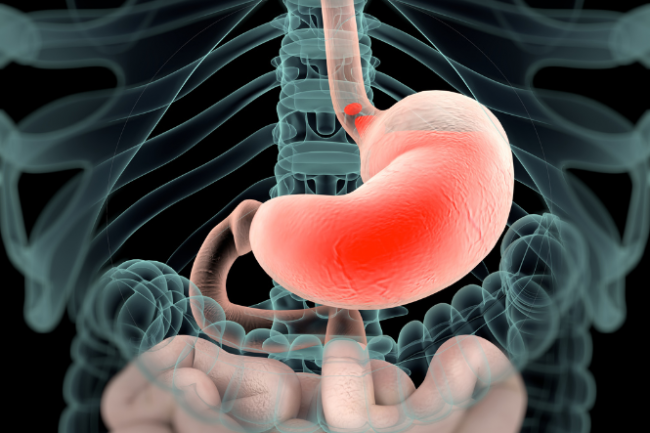If lifestyle changes haven't helped and if your reflux symptoms are frequent and bothering you, treatment should be used. If it's not treated, acid reflux may eventually damage your oesophagus and create other complications.
There are 3 main types of medicines used to treat GORD. The type of medicine prescribed depends on how severe your symptoms are. These medicines are antacids (with or without alginates), proton pump inhibitors and H2-receptor blockers (rarely used).
- Antacids neutralise stomach acids and provide rapid relief of symptoms – especially if your condition is mild. Some antacid medicines also contain alginates, which are substances that may form a type of raft on top of your stomach contents. This may not stop food and acid from refluxing, but will make it less acid and therefore less irritating. Antacids don't help to heal oesophageal damage or prevent heartburn from happening again. Antacid brands include Mylanta, Eno, Quick-Eze and Gaviscon. Antacids may be prescribed or bought over the counter with advice from your pharmacist. Sucralfate works differently by reducing the concentration of pepsin, one of the substances involved in digestion, and then forming a barrier for the lining of your stomach. It's more commonly used when treating stomach ulcers.
- Proton pump inhibitors (PPIs) block stomach acid production and help to heal your oesophagus. They're recommended as a first choice for severe GORD symptoms if other approaches haven't worked. They include omeprazole, pantoprazole and lansoprazole. If a PPI is prescribed for you it's important to take them daily, and 30 minutes before eating, for them to work properly. Read more about proton pump inhibitors.
- H2-receptor blockers reduce the production of stomach acid and can provide relief – especially if you have less severe GORD. They are slower acting than antacids and less effective than PPIs but may provide longer lasting relief than antacids. This treatment may allow your oesophagus to heal and relieve your symptoms entirely. The only available H2-receptor blocker in Aotearoa New Zealand is famotidine. Proton pump inhibitors are the preferred first choice if a regular medication is prescribed.
Medicines to speed up the transit of food and fluids in your stomach, such as metoclopramide or domperidone, can be used if there are concerns that your stomach isn't emptying properly and leading to reflux.
After your oesophagus has had a chance to heal and your symptoms improve, the strength of medicine prescribed will be reduced. Eventually you may only need to take medicine when you have symptoms. For some people with severe GORD, the lowest effective dose of medicine may need to be continued.
Medicines are effective in treating GORD but they are only part of the solution. To help prevent symptoms of GORD recurring, you may need to make some important lifestyle changes.
Other treatment options
If lifestyle changes and treatments haven't been effective, you may be referred to a specialist (gastroenterologist). It will then be important to confirm the diagnosis by completing investigations, look for complications and ruling out other conditions such as stomach problems.
If you have severe ongoing symptoms, or can't tolerate treatment, surgery may be considered. Different operations or endoscopic procedures are possible for some people.
A few people with ongoing significant inflammation of the food pipe (oesophagitis) may develop a condition called Barrett’s oesophagus. This is where the microscopic lining of your gullet changes and it can eventually lead to cancer of the oesophagus. If a diagnosis of Barrett’s oesophagus has been made, you'll need to be monitored regularly by a specialist and check-up endoscopies will be required.







